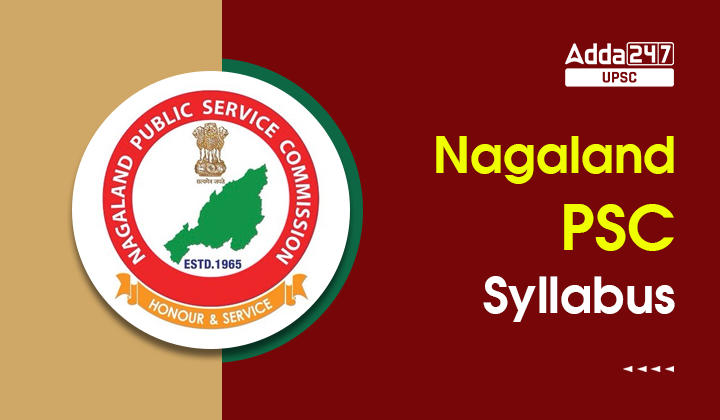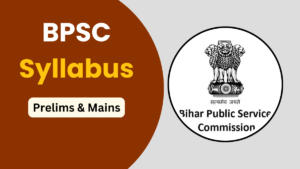Table of Contents
If you’re planning to take the Nagaland Public Service Commission (NPSC) exam, then it’s important to be familiar with the NPSC syllabus. The NPSC conducts recruitment exams for various administrative and civil service posts in the state of Nagaland. The NPSC syllabus includes topics related to general knowledge, current affairs, the English language, and specific subjects related to the desired job position. Candidates are advised to thoroughly go through the Nagaland PSC Syllabus and prepare accordingly to perform well in the NPSC examination.
NPSC Syllabus
The NPSC syllabus is vast, and candidates need to have a thorough understanding of each topic to qualify for the exam. The syllabus for the NPSC exam is divided into three stages: Preliminary Exam, Main Exam, and Interview.
NPSC Prelims Syllabus
NPSC Prelims syllabus includes topics related to general knowledge, current affairs, the English language, and Nagaland-specific topics such as the history, geography, and culture of the state. The general knowledge section covers topics such as Indian history, polity, economy, geography, and science. Candidates are advised to thoroughly go through the syllabus and prepare accordingly to perform well in the NPSC Prelims examination.
|
NPSC Prelims Syllabus |
|
| Subject | Topics |
| General Science | General appreciation and comprehension of science |
| History | Wide comprehension of the subject in its social, financial, political angles, social, and cultural legacy of India, underscoring solidarity in variety. |
| Nagaland | Social, cultural, and heritage of its people |
| Geography | Topography of India including the physical, social, financial, geology, and fundamental highlights of Indian rural and regular assets. |
| Indian Polity and Economy | Nation’s political, Executive, Judicial System, Local Bodies, Rural and Community Development, and Economic Planning in India. |
| Indian National Movement | Nature and character of the Nineteenth-century resurgence, development of patriotism, and fulfillment of autonomy. |
| General Mental Ability Test | Investigation of characterized information, coherent and conduct thinking, analogies, fundamental number-crunching, mathematical capacity, and the essential idea of PCs. |
| Current Events | Most recent advancements in every one of the fields itemized above include science and innovation and natural mindfulness. |
NPSC Mains Syllabus
The NPSC Mains syllabus includes a wider range of subjects compared to the Prelims exam. It includes subjects such as general essays, general studies, and optional subjects chosen by the candidates. Below you can check the complete NPSC Mains syllabus:-
|
NPSC Mains Syllabus |
|
| Subject | Topic |
| General Essay, Comprehension, and Grammar. |
Catastrophe management, Social issues, Analysis, and results. Recent developments of public and global significance.
|
| General Studies Paper-I (Objective) |
|
| General Studies Paper-II (Descriptive) |
|
NPSC Exam Pattern
The NPSC exam is conducted in three stages: Preliminary Exam, Main Exam, and Interview. Let’s take a closer look at each stage NPSC Exam pattern.
NPSC Prelims Exam Pattern
The NPSC Prelims exam is an objective-type test consisting of 200 multiple-choice questions (MCQs) for a total of 200 marks. The time duration of the exam is 3 hours.
| Particulars | Details |
|---|---|
| Type of questions | Objective Type Questions (MCQs) |
| Total Weightage | 200 Marks |
| Total Duration | 3 hours |
| Negative Marking scheme | No negative marking |
NPSC Mains Exam Pattern
The NPSC Main Exam is a descriptive type exam, and it consists of three papers: General Essay, General Studies, and Optional Subject. Each paper carries 200 marks, with a total of 600 marks for the entire exam.
| Name of the Test | Total Marks | Total Time | Negative-Marking |
|---|---|---|---|
| General Essay, Comprehension, and Grammar. | 200 | 3 hours | 0.33 marks will get deducted for every incorrect answer |
| General Studies Paper-I | 200 | 3 hours | |
| General Studies Paper-II | 200 | 3 hours |
NPSC Syllabus Interview/Viva Voce
The NPSC (Nagaland Public Service Commission) interview or viva voce round is the final stage of the selection process. Candidates who qualify for the Mains exam are called for the interview round, which is usually conducted at the NPSC office in Kohima.
The interview round aims to assess the candidate’s personality, attitude, communication skills, and knowledge about the subject. The panel usually consists of 3-5 members, including experts from the relevant field and experienced civil servants.
NPSC Exam Syllabus with Preparation Strategy
Here are some tips and strategies for preparing for the NPSC (Nagaland Public Service Commission) exam based on the syllabus:
- Familiarize yourself with the NPSC syllabus: The first step is to thoroughly go through the NPSC syllabus for both the Prelims and Mains exams. Make a study plan based on the topics covered and allocate time accordingly.
- Read newspapers and current affairs magazines: Stay updated with the latest national and international news, events, and developments. Read newspapers and current affairs magazines regularly to improve your general awareness and knowledge.
- Improve your language skills: The English language section in both the Prelims and Mains exams is crucial. Work on improving your vocabulary, grammar, comprehension, and writing skills. Practice reading and writing regularly.
- Refer to standard textbooks and study materials: For subjects such as history, geography, and general studies, refer to standard textbooks and study materials. Make notes and revise them regularly.
- Practice previous year question papers: Practicing previous year question papers is an effective way to understand the exam pattern and get a sense of the type of questions asked. It also helps in identifying areas that need more attention.
- Time management: Manage your time effectively by setting realistic goals and deadlines. Prioritize your topics based on importance and difficulty level.
- Mock tests and revision: Take mock tests and practice papers regularly to improve your speed, accuracy, and time management skills. Revise regularly to ensure that you retain the information you have learned.



 APSC Syllabus 2025, Download Prelims And...
APSC Syllabus 2025, Download Prelims And...
 Punjab PCS Syllabus 2025, New Prelims an...
Punjab PCS Syllabus 2025, New Prelims an...
 BPSC Syllabus 2025 and Exam Pattern For ...
BPSC Syllabus 2025 and Exam Pattern For ...




